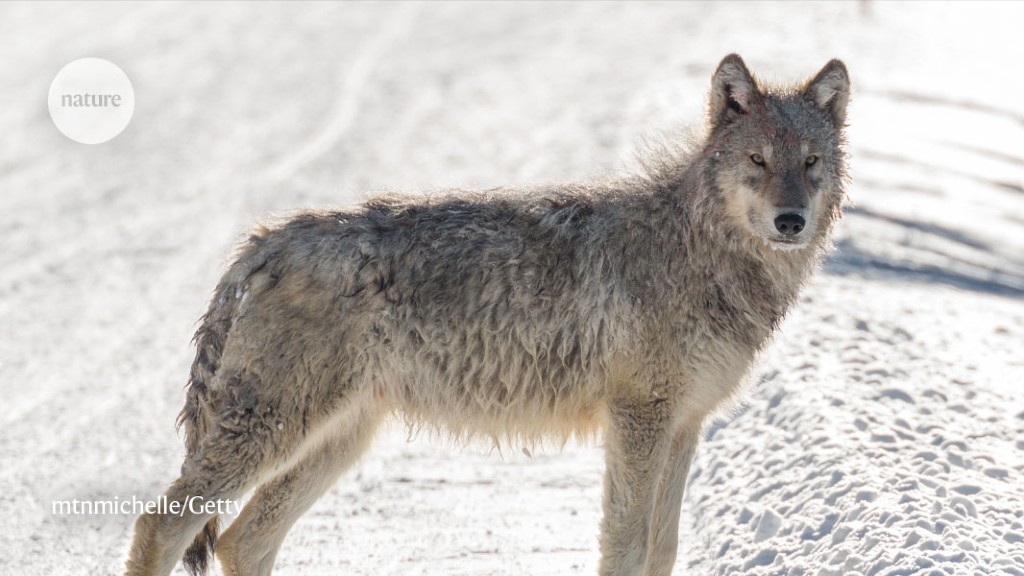
Infected animals are also more likely to leave their home packs and strike out on their own.
That becomes much more likely if the parasite alters the host’s behaviour, making it foolhardy.
Warm-blooded mammals can catch the parasite by eating an infected animal or ingesting forms of T.gondii shed in the faeces of infected cats.
Up to one-third of humans might be chronically infected.
In one work, infected hyenas in Kenya became more likely to be eaten by lions2.
Connor Meyer and Kira Cassidy, wildlife ecologists at the University of Montana in Missoula, thought of a rare opportunity to link infection with behaviour in wild wolves: data on grey wolves (Canis lupus) collected intensively in Yellowstone National Park, Wyoming, over nearly 27 years.
Some wolves in Yellowstone live near, and sometimes steal prey from, cougars (Puma concolor), which are known to carry the parasite.
Wolves could become infected by eating the cats — or their faeces.
The team looked at 256 blood samples from 229 wolves, which had been carefully watched throughout their lives, and had their life histories and social status recorded.Meyer and Cassidy found that infected wolves were 11 times more likely than uninfected ones to leave their birth family to start a new pack, and 46 times more likely to become pack leaders — often the only wolves in the pack that breed.
He adds that it demonstrates the immense value of the long-term study of wolves and other wildlife in Yellowstone National Park.
In future, the team hopes to look at whether infection might make wolves more likely to reproduce successfully — and what the ripple effects of low or high infection rates might be across ecosystems.gondii infection might expand more quickly across a landscape as individual wolves make the choice to disperse.
Aggressive and risk-taking pack leaders could influence how entire packs act — possibly even increasing their chances of encountering cougars and exposing more members to infection.
Wolves are known for killing cougars, however, so even bold, risk-taking wolves infected with the parasite are not likely to end up as lunch for a cougar, Meyer says.He speculates that in the past, infected wolves could have been more likely to be preyed on by American lions (Panthera atrox), massive feline predators weighing around 200 kilograms, which prowled North America until they went extinct over 11,000 years ago.